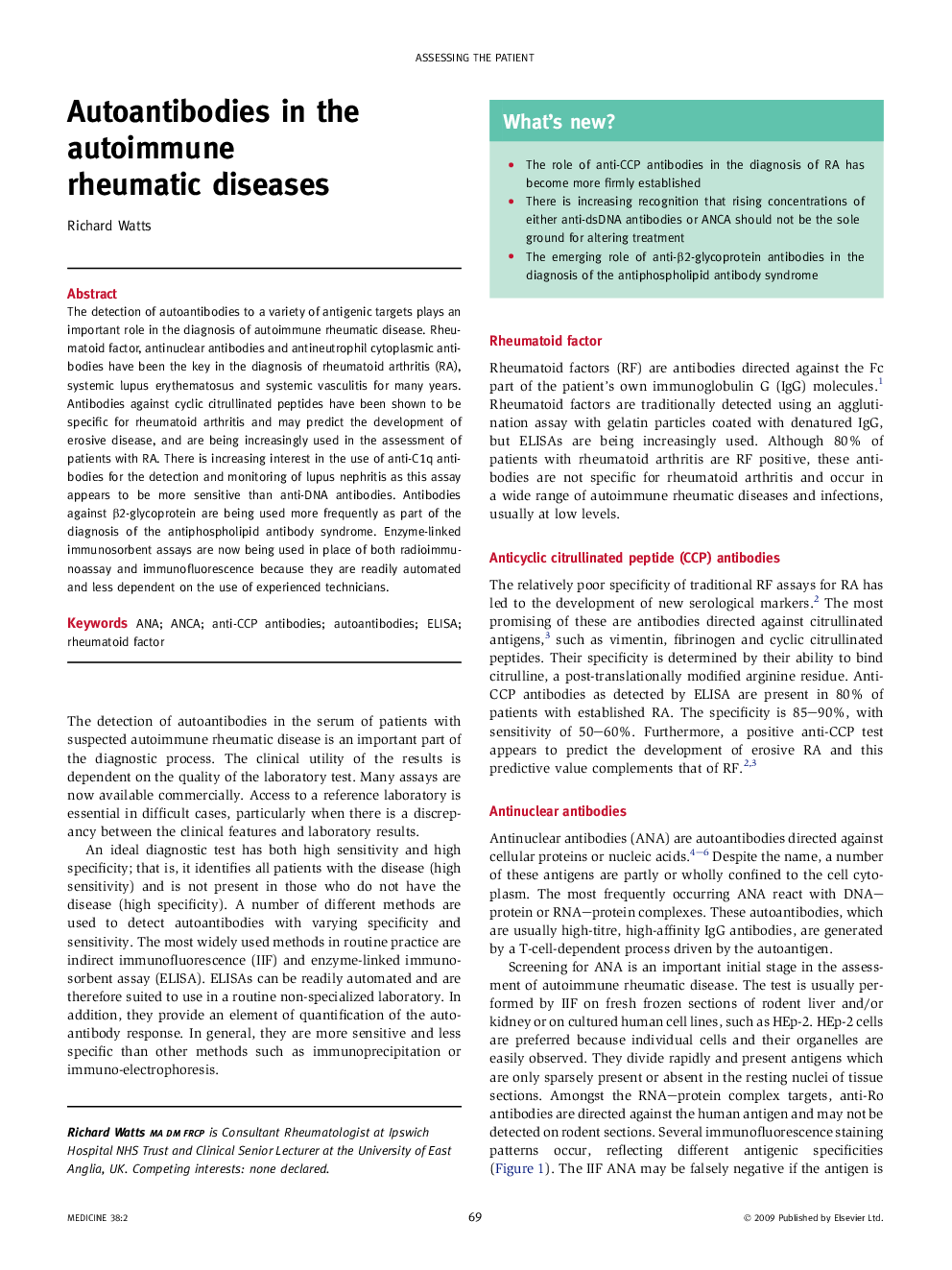| Article ID | Journal | Published Year | Pages | File Type |
|---|---|---|---|---|
| 3807475 | Medicine | 2010 | 4 Pages |
The detection of autoantibodies to a variety of antigenic targets plays an important role in the diagnosis of autoimmune rheumatic disease. Rheumatoid factor, antinuclear antibodies and antineutrophil cytoplasmic antibodies have been the key in the diagnosis of rheumatoid arthritis (RA), systemic lupus erythematosus and systemic vasculitis for many years. Antibodies against cyclic citrullinated peptides have been shown to be specific for rheumatoid arthritis and may predict the development of erosive disease, and are being increasingly used in the assessment of patients with RA. There is increasing interest in the use of anti-C1q antibodies for the detection and monitoring of lupus nephritis as this assay appears to be more sensitive than anti-DNA antibodies. Antibodies against β2-glycoprotein are being used more frequently as part of the diagnosis of the antiphospholipid antibody syndrome. Enzyme-linked immunosorbent assays are now being used in place of both radioimmunoassay and immunofluorescence because they are readily automated and less dependent on the use of experienced technicians.
